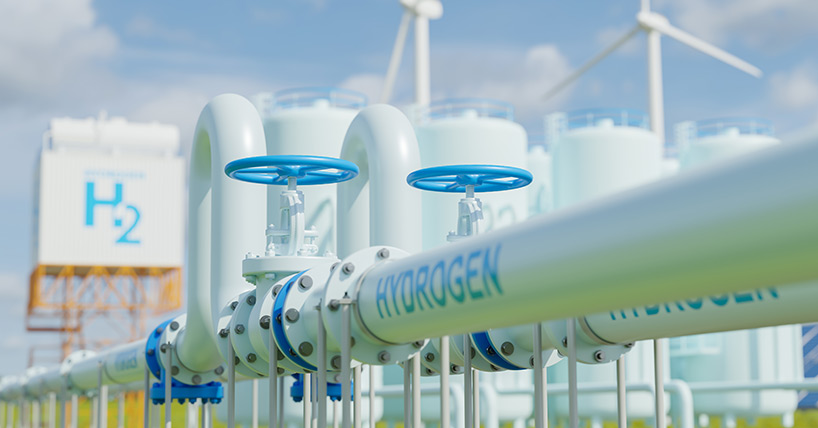IChemE Global Awards
University project wins prestigious chemical engineering award
Published on: 27 November 2025
A Newcastle University project exploring low-carbon fuel economy has won a Research Project Award at the 2025 IChemE Global Awards.
The Engineering chemical reactor technologies for a low-carbon energy future project is led by Professor Ian Metcalfe and includes Dr Yongliang Yan, Matteo Fella and Dr Wenting Hu.
Funded by the Royal Academy of Engineering, the project’s goal is to develop transformational chemical reactor technologies capable of delivering efficient, scalable chemical conversions essential for a low-carbon fuel economy, with a particular emphasis on clean hydrogen production and e-fuels synthesis.
It is part of the Royal Academy of Engineering’s Chair in Emerging Technologies programme and reflects five years of pioneering innovation in chemical engineering at Newcastle University.
Chemical conversions underpin many processes required for industrial decarbonisation. However, traditional reaction engineering has advanced only incrementally in recent decades. This project challenges that status quo by harnessing novel approaches in cyclic reactor operation—also known as chemical looping—to overcome long-standing limitations associated with reaction equilibria.
A major milestone of the project is the design, construction, and successful operation of a 5 kWth hydrogen production pilot plant at Newcastle University. The system employs a single looping reactor to perform the water–gas shift (WGS) reaction with performance unconstrained by equilibrium limits, enabling the direct production of high-purity hydrogen without the need for downstream separation of hydrogen and carbon dioxide.
Professor Ian Metcalfe, Chair in Emerging Technologies and Professor of Chemical Engineering School of Engineering, said: “This award is very satisfying recognition of the work performed by a great team who have worked very hard on the underpinning science and application of the concept at demonstration scale.”
Dr Yongliang Yan, Research Associate, at Newcastle University’s School of Engineering, added: “We are absolutely delighted to receive the IChemE Research Project Award. This recognition confirms the significance of our work and motivates us to push even further. For me personally, this award reflects the strength of our collaboration, the creativity of the team, and our commitment to delivering impactful solutions for clean hydrogen and sustainable fuels. We look forward to engaging with industry and investors to translate this research into real-world practice.”

Clean hydrogen and e-fuel synthesis
The research provides a pathway towards more efficient, compact, and scalable systems for clean hydrogen and e-fuel synthesis. Its ability to eliminate equilibrium constraints makes it highly attractive for industries seeking cost-effective decarbonisation solutions.
Matteo Fella, Research Assistant, School of Engineering, said: “It’s a real honour for our team to receive this award. It has taken a huge collective effort to develop this technology from early concept to demonstration scale, and I’m really pleased that the dedication and expertise of the whole team have been recognised. I’m incredibly proud of the progress we’ve made and excited about the opportunities ahead as we continue working towards scalable, low-carbon solutions for hydrogen and sustainable fuels.”
Dr Wenting Hu, Lecturer at the School of Engineering, said: “We are delighted to receive this recognition from IChemE, and we hope to take the project further towards application in the near future.”
With more than 100 finalists across 16 categories, the program featured an international line-up of winners and highly commended entries, including entries from the US, Germany, Denmark, Australia, New Zealand, Malaysia, and more.
The Institution of Chemical Engineers (IChemE) advances chemical engineering's contribution for the benefit of society. We facilitate the development of chemical engineering professionals and provide connections to a powerful network of around 32,000 members in more than 100 countries.



